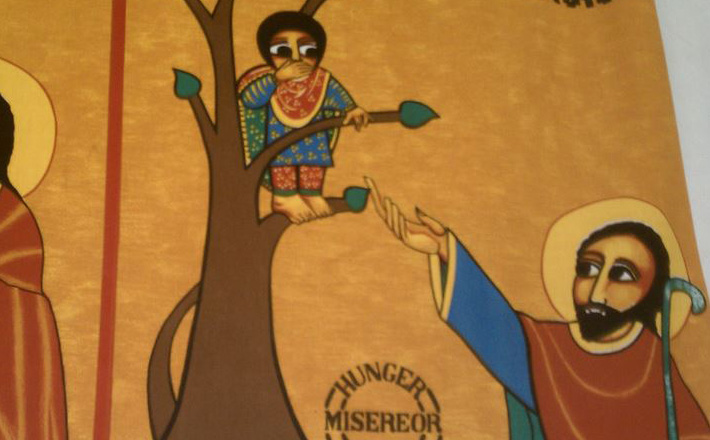Commentary on Psalm 32:1-7
Psalm 32 is one of the Penitential Psalms (6, 32, 38, 51, 102, 130, and 143).
These Psalms center on the confession of sin and were a part of the worship of ancient Israel. Even today many churches participate in confession as part of their worship. The Lord’s Prayer offers opportunity for confession when we ask God to forgive us of our sins (trespasses/debts) as we forgive those who have sinned as us.
Richard Foster in his book The Celebration of Discipline reminds the reader that confession is a part of the spiritual disciplines; while we may consider ourselves a “fellowship of saints”, we are first and foremost a “fellowship of sinners.” Salvation is too often viewed as a one-time decision when actually it is a lifetime journey.1 There are times we will stumble on the journey. There are also times when we are blinded to our own short-comings by pride or prejudice.
The church, in ways, is similar to a 12-step program like Alcoholics Anonymous, where all recognize they have a problem and join together in helping each other through their problems. They share both in times of failure and in times of success. The church should also be a place where people can share both their successes and their failures:
Hello, my name is Dwayne and I am a sinner.
Hello Dwayne.
Psalm 32 is a story about one successfully confronting sin. Unlike, the other penitential psalms, which are spoken in the midst of the pain of sin, Psalm 32 is a song of deliverance from sin. Verses 1 and 2 begin with the word “Blessed”. Does that sound familiar? The same word is found in the Beatitudes in Matthew 5 and elsewhere in scripture. The beatitudes speak of those who find peace and comfort in a certain type of living. In Psalm 32 one finds peace and comfort in forgiveness. “Blessed is the one … whose sin is covered” (1c). “Covered” is the same word as for the Passover Lamb (peshach). The blood of the lamb spread on the doorpost of the homes in Egypt protected their inhabitants from the tenth plague, the death of the firstborn. The psalmist sees the peshach as a protection or covering from one’s own sin: “whose sin the Lord does not count against them.”(2b)
Why is the Psalmist happy? Because of the deliverance from the torment of unconfessed sin which is described in verse 3 and 4.
3 When I kept silent,
my bones wasted away
through my groaning all day long.
4 For day and night
your hand was heavy on me;
my strength was sapped
as in the heat of summer.
There was no life when sin dominated the writers. “Bones wasting away” is a common image in the psalms to describe a broken life. It speaks of weakness and the inability to live life to its fullest. The wasting away is accentuated by the groans of what once was. The joy of life is replaced by conviction, portrayed as the heavy hand of God, depleting life’s energy like an oppressive summer heat.
Instead of staying in this sin sick state, the writer turns to confession in verse 5.
When I acknowledged my sin to you
and did not cover up my iniquity
“Cover up” is the same word, peshach, as found in verse 1. However, here it refers to the fact that sin cannot be dealt with on our own by ourselves. Being willing to admit that one has a problem is the first step toward recovery.
Why did the Psalmist choose to share about his sin? To encourage others who were going through similar problems.
6 Therefore let all the faithful pray to you
while you may be found;
surely the rising of the mighty waters
will not reach them.
It is as if the psalmist is saying, “You can experience what I experienced! God will protect you from the chaos of your life and your world” (waters = chaos).
Finally, we do not fear approaching the Lord for forgiveness: “You are my hiding place; you will protect me from trouble.” (Psalm 26:7a, b) the hiding place is a safe place. In Louisville, as well as many major cities, there are safe places where abused, neglected, or lost children to provide protection and help. These locations are often marked by the yellow Safe Place placard. God provides a safe place for us, a place of protection and help where we can confess our sins and find forgiveness. It is also a place of comfort from the sins of others. And we are not alone for we are surrounded by others who are also singing their songs of deliverance.
Notes:
1 Richard J. Foster, Celebration of Discipline: The Path to Spiritual Growth (San Francisco: Harper, 1998), 145.


October 30, 2016